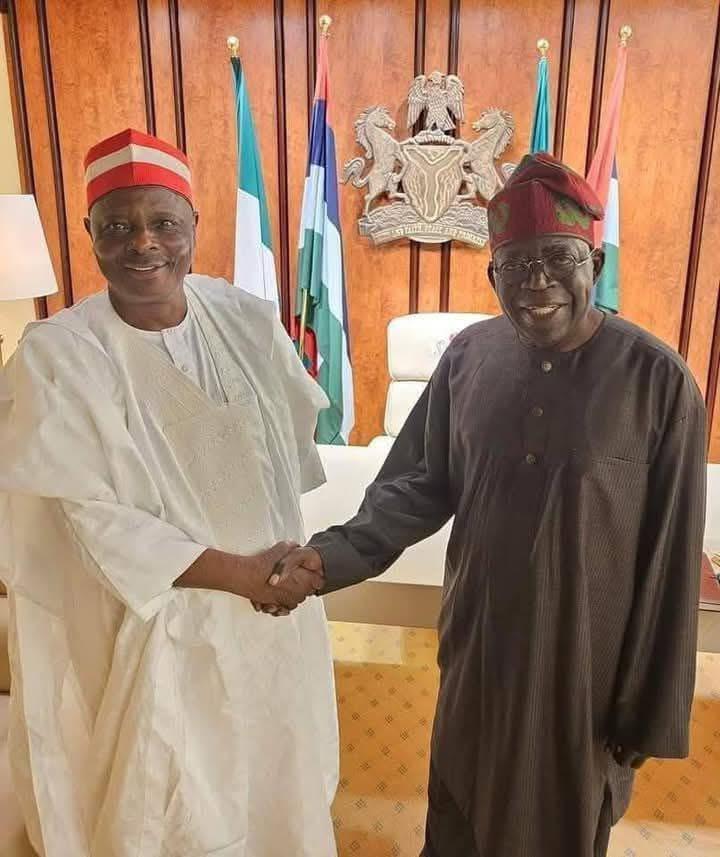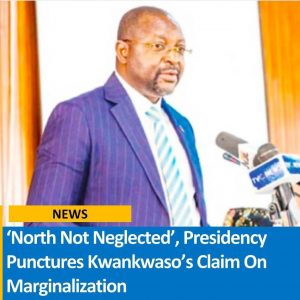Whenever a President occupies the seat of power, it becomes politically convenient and almost strategic for some politicians to revive the age-old North-South divide.
They eagerly toss around figures related to infrastructure, appointments, and employment, not for clarity or accountability, but to stir resentment and pit one region against the other.
With the 2027 general elections on the horizon, Nigeria’s political stage is once again echoing with familiar rhetoric, ethnic division as a campaign strategy.

This time, it’s Sen Rabiu Kwankwaso, a former Governor of Kano and presidential hopeful, accusing President Bola Tinubu’s administration of sidelining the North in national infrastructure development.
But is his claim rooted in fact or fiction? Is Kwankwaso’s accusation a political play or valid concern?
Speaking at a recent event, Kwankwaso alleged that President Tinubu is disproportionately investing national resources in the South, his home region, to the detriment of the North.
According to him, we are told there is a road from the South to the East. We support infrastructure anywhere in this country… but a situation where the government is taking our resources and dumping it in one part of the country while others are abandoned I don’t believe that is the right thing to do.
He went on to urge the federal government to “change” and ensure “equitable distribution” of resources.
However, a closer look at official data paints a strikingly different picture.
According to the Federal Ministry of Works, as of late 2024, 52.48% of ongoing “legacy” road projects under Tinubu, 1,414 km out of 2,735 km are located in the North, while 48% are in the South.
Of the 82 Sukuk-funded road projects, 45 are in the North. For 260 emergency road interventions, the breakdown is 108 in the North and 98 in the South.
The Minister of Works, Sen David Umahi, has made it clear that projects are awarded based on technical submissions and existing commitments, not regional bias.
At a recent FEC meeting, he disclosed that ₦507 billion was allocated for the Abuja–Kano road, while just ₦24 billion went to a Southeast project, a stark contrast to the allegations of Southern favoritism.
Major northern infrastructure projects currently underway include: Sokoto–Badagry Superhighway, starting from Kebbi (₦958 million awarded)
Abuja–Kaduna–Zaria–Kano Expressway, with multi-phase funding exceeding ₦777 billion.
Other active corridors: Sokoto–Illela, Mararaba–Keffi, Kaduna–Jos, Zaria–Sokoto, and Abuja–Lokoja
Rail infrastructure also tells a similar story. The Kano–Kaduna Standard-Gauge Railway is backed by China’s Development Bank, injecting $255 million into a previously secured $973 million loan to connect the North to Abuja and improve regional mobility.
Kwankwaso’s allegations are a dangerous distraction, knowing full-well that Nigerians don’t bother fact-checking, we are quick to ride on emotions and blackmail especially the one that appeals to us. His allegations further risk inflaming regional tensions unnecessarily.
In truth, the North enjoys a slight edge in ongoing infrastructure projects both by number and geographical spread. Suggesting otherwise without facts is not only disingenuous, but deeply irresponsible, especially from someone aspiring to lead the nation.
Such statements exploit public emotions, especially among citizens who may not have access to the real data. Worse still, they perpetuate a harmful “North vs South” narrative that Nigeria desperately needs to move beyond.
Ironically, the North has held power longer than any other region since independence. Yet, widespread issues like low literacy, poor infrastructure, and youth unemployment remain largely unaddressed.
Where was the outrage when northern-led administrations failed to close these gaps? It’s time to shift focus from ethnic grievance to developmental accountability regardless of who’s in power.
If we must speak of equity, let’s do so with evidence not emotion. Playing the regional card without data only deepens division.
Stay ahead with the latest updates!
Join The Podium Media on WhatsApp for real-time news alerts, breaking stories, and exclusive content delivered straight to your phone. Don’t miss a headline — subscribe now!
Chat with Us on WhatsApp






